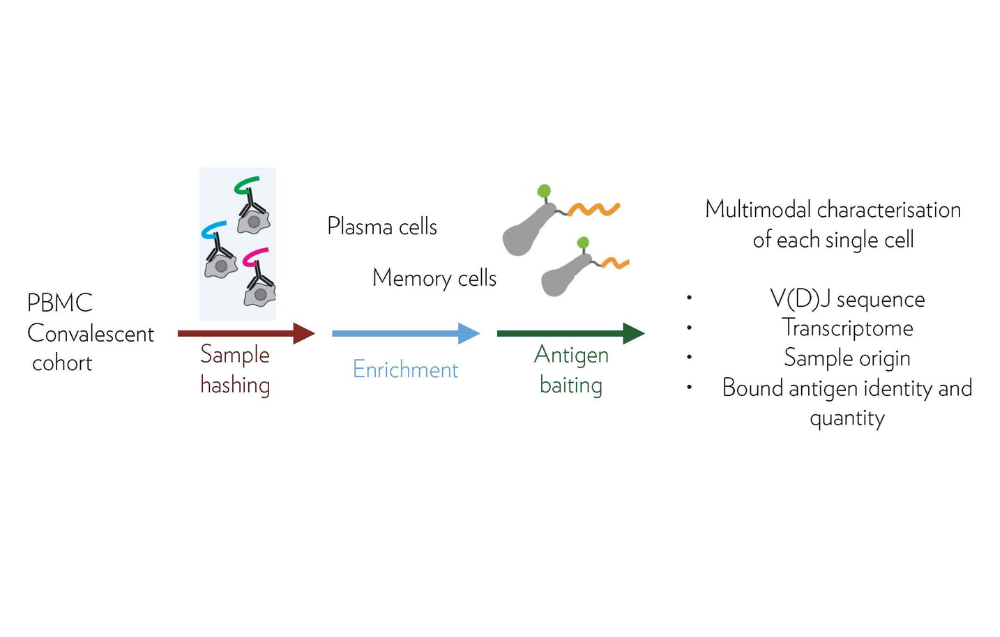Identification, Characterisation and Optimisation of High- affinity Antibodies Against SARS-CoV-2
There is a clear unmet need for novel anti-viral therapeutic approaches for COVID-19. To build protection against infections, our adaptive immune system produces a repertoire of antibodies that can recognise, bind, and neutralise infectious pathogens. This project aims to identify high-affinity antibodies generated in COVID-19 patients that could be further harnessed for therapeutic interventions.
The human body’s immune system has both innate and adaptive strategies to protect against disease. Adaptive immune cells, known as B lymphocytes, generate a repertoire of antibodies that can recognise, bind, and target disease-causing pathogens for elimination. These protective antibodies are specific to a particular pathogen, such as SARS-CoV-2, and therefore, hold significant potential as recombinant agents for the therapy of COVID-19 patients.
In this project, the consortium will identify high-affinity antibodies against SARS-CoV-2 by screening the blood of convalescent COVID-19 patients. The consortium will combine innovative approaches in high-throughput testing of SARS-CoV-2 peptides, B cell receptor analysis at the single-cell level, and related antigen-affinity assays to interrogate the antibody repertoire of these patients.
The project results will be invaluable for understanding B cell immunity in COVID-19 patients and for identifying novel immunotherapeutic agents against SARS-CoV-2 in the future.
Banner image above: Transmission electron microscopic image of an isolate from the first U.S. case of COVID-19, formerly known as 2019-nCoV. The spherical viral particles, colourised blue, contain cross-sections through the viral genome, seen as black dots.

Project experimental workflow. Image: A. Moor

